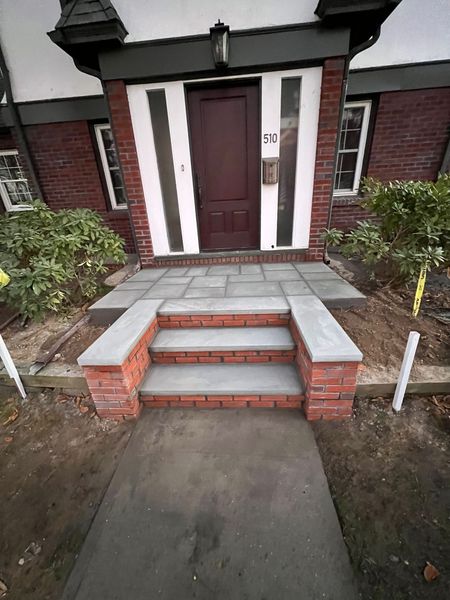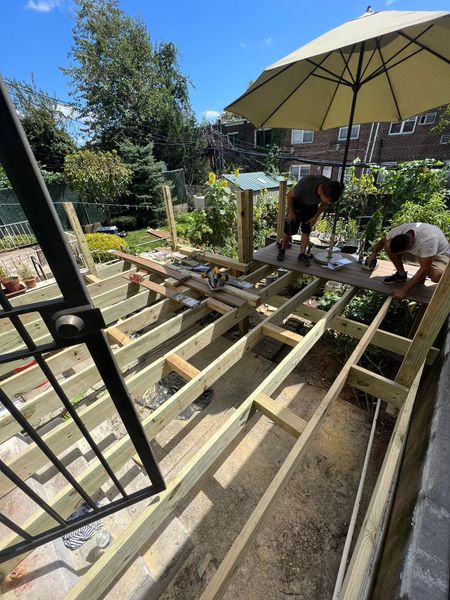Introduction
Remodeling your home can be one of the most exciting yet daunting tasks you’ll ever undertake. Whether you're looking to create a dream kitchen, expand your living space, or update your bathroom, setting a realistic remodeling budget is key to ensuring the process goes smoothly and that you don’t end up in financial straits. In this article, we’ll explore various tips and tricks for establishing a budget that meets your needs while also considering the potential pitfalls of home renovation projects.
Setting a Realistic Remodeling Budget: Tips and Tricks
When it comes to remodeling, understanding how to set a realistic budget can save you time, stress, and money. A well-planned budget acts as your roadmap during the renovation process. Here’s how to get started:
1. Determine Your Goals
Before diving into numbers, think about what you want to achieve through your remodel. Are you looking for increased functionality, improved aesthetics, or enhanced energy efficiency? Understanding your goals helps in determining the scope of the project.
2. Research Costs
Take time to research average costs associated with the type of remodel you're planning. Websites like HomeAdvisor or local contractor sites can provide insights on what other homeowners are paying for similar projects in your area.
3. Be Prepared for Hidden Costs
In any remodel, hidden costs can crop up unexpectedly. These may include structural repairs, plumbing issues, or unexpected code compliance fees. It’s wise to allocate an additional 10-20% of your total budget for these roofing contractors unforeseen expenses.
4. Get Multiple Quotes
When selecting contractors or materials, always get multiple quotes. This will not only help you understand market rates but also give you leverage when negotiating costs with contractors.
5. Prioritize Your Needs vs Wants
Make a list of what absolutely needs to be done versus what would be nice to have but isn’t essential. Focusing on needs first ensures that your most important renovations are completed within budget.
6. Factor in Financing Options
If you're considering financing options for your remodel, research available loans or credit lines carefully. Interest rates and terms can vary widely; make sure you're comfortable with whatever option you choose.
Understanding Common Remodeling Costs
As you prepare for remodeling, it's crucial to understand common costs associated with different types of renovations:
Kitchen Remodel Costs
- Average cost: $12,000 - $35,000 Factors affecting cost: cabinet materials, countertop selections (granite vs quartz), and appliance quality.
Bathroom Remodel Costs
- Average cost: $6,000 - $15,000 Considerations include fixtures (like low-flow toilets), flooring options (tile vs vinyl), and whether you'll keep existing plumbing configurations.
Room Addition Costs
- Average cost: $20,000 - $100,000 Key factors involve materials used (wood framing vs steel) and labor costs based on location.
Exterior Upgrades
- Average cost varies widely based on scope (e.g., siding replacement vs roof repair). Seasonal weather impacts can also play a role in timing your exterior upgrades effectively.
Tips for Choosing Contractors Wisely
Choosing the right contractor is just as important as setting a budget:
7. Questions to Ask Before Hiring a Remodeling Contractor
What’s included in your estimate? How many projects like this have you completed? Can I see references from past clients? What’s the timeline for completion? How do you handle change orders?By asking these questions upfront, you'll gain valuable insight into their professionalism and reliability.
Common Remodeling Mistakes Homeowners Make
Understanding common pitfalls can prevent costly mistakes:
8. Underestimating Timeframes
Many homeowners underestimate how long renovations take—don’t expect everything will go according to plan!
9. Skipping Permits
Neglecting necessary permits can lead to fines down the road or even require tearing out work that’s already been done.
10. Not Setting Aside Emergency Funds
It's critical to have funds available for surprises that may pop up during construction; having this buffer reduces stress significantly.

FAQs
1. What should I include in my remodeling budget?
Include materials costs, labor fees, permits, inspections, and a contingency fund for unexpected expenses.
2. How do I decide which areas of my home need remodeling?

3. Is it better to remodel room by room or all at once?
This depends on personal preference and budget availability; doing it all at once can streamline processes but requires more upfront capital.
4. What happens if I exceed my remodeling budget?
You may need to scale back other projects or find alternative financing solutions—consider discussing these options with your contractor early on.
5. How long does a typical remodel take?
It varies widely depending on scope; minor kitchen updates might take weeks while extensive additions could span months!
6. Should I DIY parts of my remodel?
DIY can save money but assess skill levels honestly; hiring professionals ensures quality work where needed most.
Conclusion
Setting a realistic remodeling budget is not just about crunching numbers—it involves strategic planning and informed decision-making throughout the entire process! By understanding costs associated with different aspects of renovation while prioritizing needs over wants—and being aware of potential pitfalls—you’re well-equipped for success! Remember that clear communication with contractors combined with diligent research lays the foundation for achieving those dream spaces without breaking the bank!
So whether you're updating an outdated kitchen or finally finishing that basement you've always wanted—taking these steps will prepare you not only financially but mentally as well! Happy remodeling!